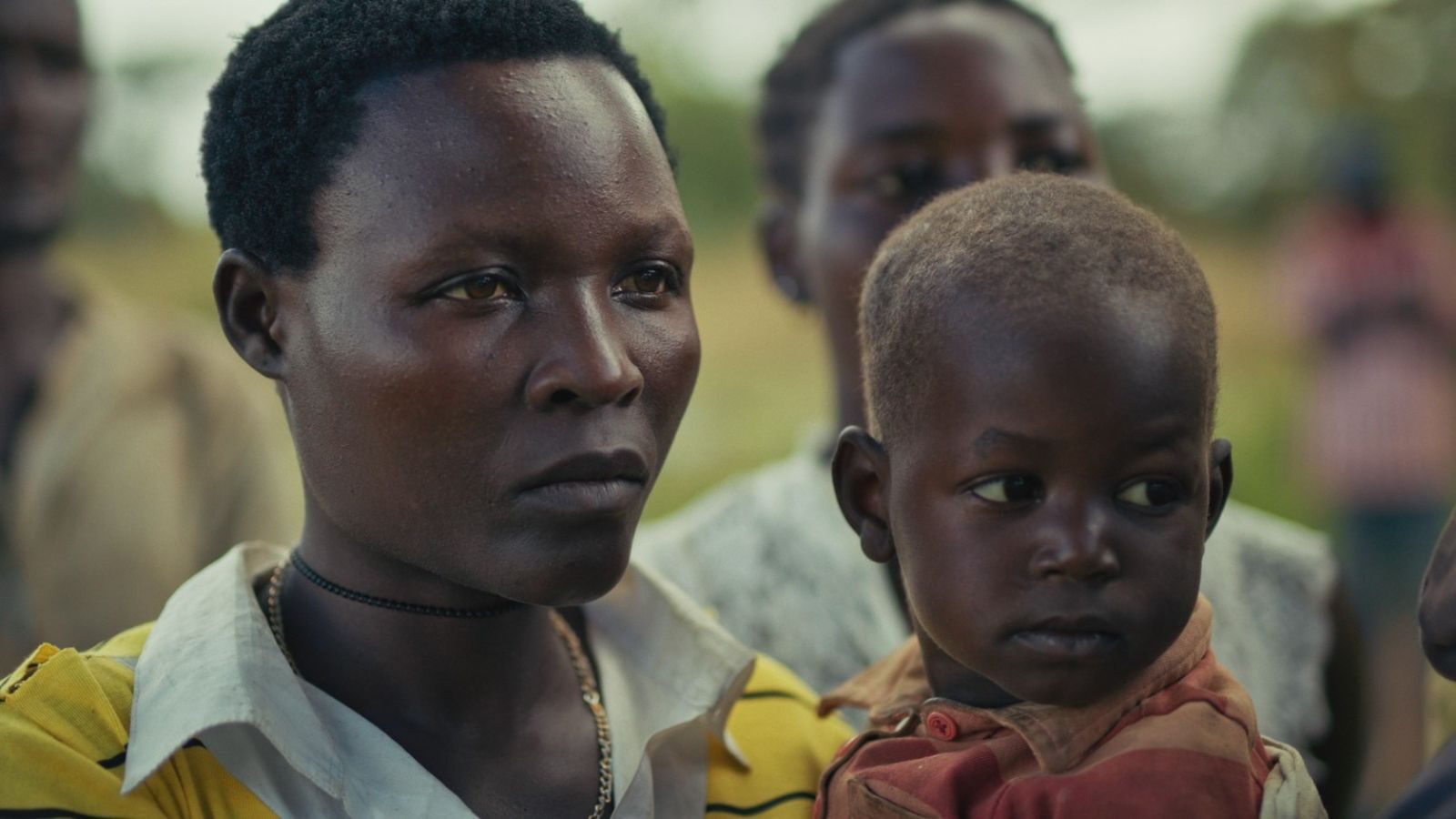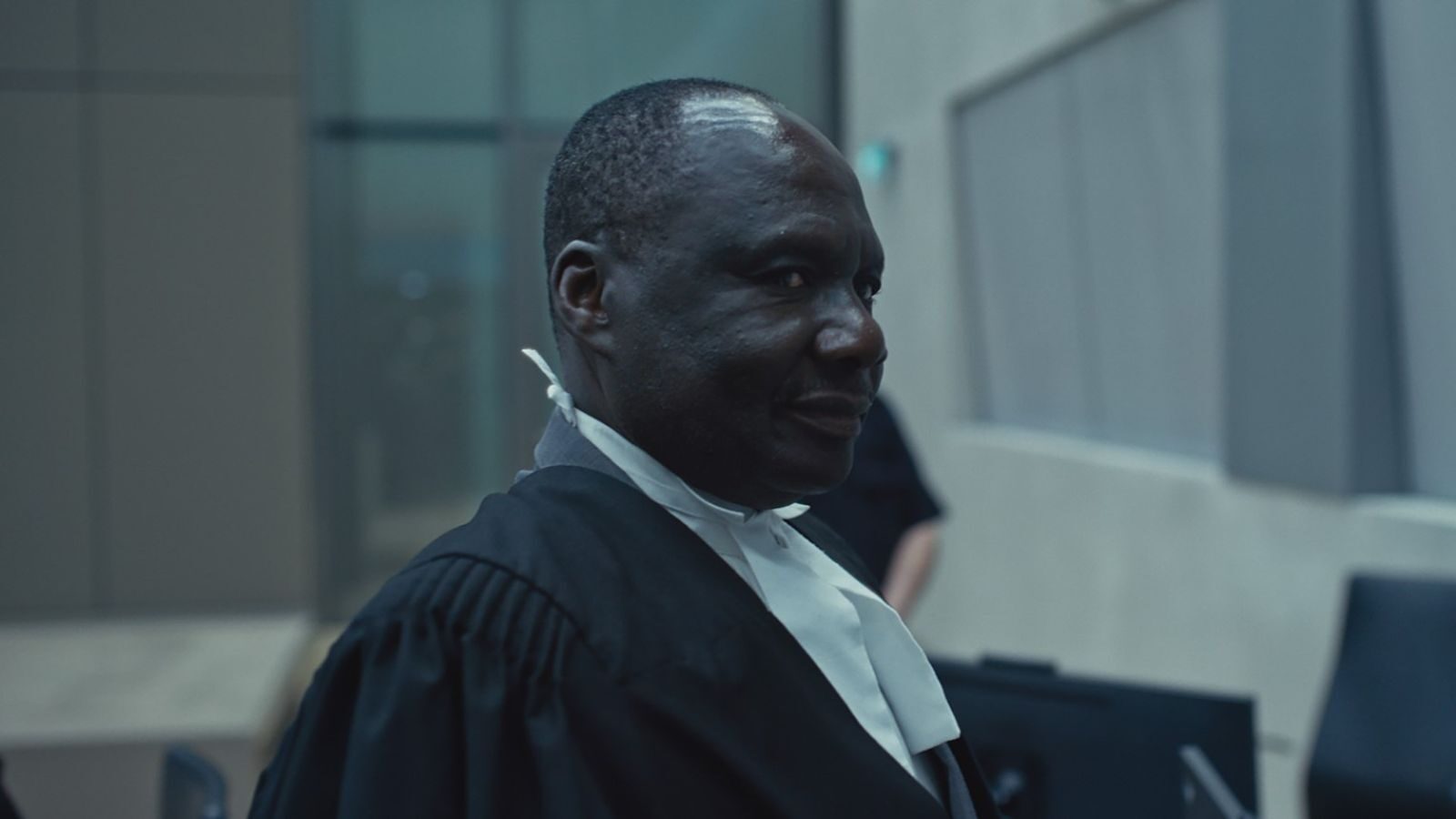|
|
||
|
Pro Tools
FILMFESTIVALS | 24/7 world wide coverageWelcome ! Enjoy the best of both worlds: Film & Festival News, exploring the best of the film festivals community. Launched in 1995, relentlessly connecting films to festivals, documenting and promoting festivals worldwide. Working on an upgrade soon. For collaboration, editorial contributions, or publicity, please send us an email here. User login |
Hot Docs 2023: Theatre of Violence
Each year there is a growth of issue-oriented documentaries, but in 2023 Hot Docs included THEATRE OF VIOLENCE (ToV) directed by Lukasz Konopa and Emile Langballe which outranked most of the other productions. This Danish-German 2023 documentary had a Special Presentation with its North American premiere and excelled in posing in a persuasive and impressive manner fundamental questions about the confrontation between the Western European based system of detached criminal justice, the International Criminal Court (ICC) in The Hague, and many other complex political and social factors, including colonial legacies. Among these complex factors were the war crimes in Uganda and neighboring countries by the Lord’s Resistance Army (LRA). Dominic Ongwen a high-ranking commander of the LRA that engaged in war crimes was arrested and tried in 2005 for his crimes. Ongwen testified during his trial that he followed the divinely inspired commands of the LRA leader Joseph Kony who had left for the jungle at the age of 25 years. Kony’s army of about 3,000 at its peak formed by abducted and LRA trained militant youth was engaged since the late 1980s through the early 21st century in a jungle war against the Uganda government and its armed forces. Despite numerous campaigns by the Ugandan Army and allies from neighboring countries to defeat the LRA there was no progress. Not discussed in ToV is the support of the United States for the battle with LRA amounting to more than $40 million since 2003, or the sending of about 100 members of US Special Forces to help the Ugandan army and its allies to hunt down Joseph Kony. He was not caught and the LRA command structure remained intact. Dominic Ongwen was the only member of the LRA tried by the International Criminal Court and was accused of 61 war crimes. Born 1975, he had been abducted into the LRA at the age of 9 years old and trained as a soldier. Its leader, Joseph Kony, was never apprehended but there are indications from the documentary’s discussion with his family that he may still be alive.
It took more than six years for Konopa and Langballe, two award winning documentary film makers, to complete Theatre of Violence. In a unique and compelling approach, they juxtaposed the trial courtroom proceedings with long footage they recorded in Uganda. The sterile courtroom in The Hague with mostly western judges and prosecuting officials insisting on and reciting the letter of the applied laws contrasted with the mixed defense team and its emphasis that Ongwen is at the same time victim and a perpetrator and that he cannot be disconnected from his past, arguments which found hardly a response by the tribunal. Ironically, western legal practices hold that in trials of violent crimes background sociocultural factors of the accused are to be considered. The viewers of ToV were sympathetic to the defense because they had been exposed earlier to a script about the devastating impact England had on its colonial Uganda by dividing the region and initialing racial and tribal conflicts. The Acholi of northern Uganda, where many members of the LRA were recruited, had resisted British rule and were stigmatized as primitive by the British and recruited as laborers or conscripted into the colonial army. Those from the South were favored, receiving economic aid and worked for the colonial service. The dominant political parties, including the National Resistance Movement by Museveni, the perennial Uganda president, came from the south and west of the country. Tribal conflict started erupting when Museveni returned to power in 1986 and Acholi leaders revolted. Acholi soldiers left the Uganda army to return to their homes in the North, establishing a short-lived resistance group with the message that Achovi could overthrow the government if they followed God’s instructions. It constituted an early link to the Lord’s Resistance Army, a designation formally embraced in 1992. Equally impressive were the numerous interviews recorded in Uganda by the filmmakers and their native associates. We learn from Krispus Ayena, the Ugandan attorney of Ongwen and other associates who knew individuals familiar with the LRA, the defendant and Joseph Kony, that the understanding of the LRA cannot be disconnected from Uganda’s colonial past and its tribal conflicts. Disregarded in the ICC trial were are important cultural factors influencing Ugandans such as spirituality, belief in supernatural powers and tribal allegiance. Those interviewed in Uganda stressed persistent corruptions by numerous governments and the close to total ignorance by westerners of politics in Uganda. No one justified the crimes committed by the LRA but some local observers suggested the relevance of restorative justice.
Many observers also shared their views on the failure of the International Criminal Court to prosecute the Ugandan government and army for crimes committed in the struggles against the LRA and their alleged adherents; a failure which destroyed the ICC credibility. The ICC seems to have been created to prosecute crimes committed in developing countries. Thus, the ICC and western countries totally disregarded Ugandan armed forces killing of civilians as well as the devastation of villages and forced transfer of one million Acholi to camps protecting them from the LRA. ToV reflected, for outsiders, a fundamental bias favoring Ugandan groups holding power. The west remained silent about the government’s abuse and crimes but embraced funding the armed struggle with the LRA and was in full support of western popular public relations campaigns and of a short film KONY 2012 which focused on the LRA, its abduction of children, arming them and committing war crimes. The video generated global attention but was criticized for inaccuracies. For many the, ICC was oblivious to the perspective that the punishment of the crimes and parallel restorative justice was more important than the return to re-colonized penalty justice. Dominic Ongwen was convicted of all charges and condemned to 25 years of prison in May 2021. Claus Mueller. New York filmexchange@gmail.com
02.06.2023 | Claus Mueller's blog Cat. : Colonial Rule Documentary HotDocs ICC international criminal court Lord’s Resistance Army LRA Theatre of Violence uganda Documentary FILM FESTIVALS
|
LinksThe Bulletin Board > The Bulletin Board Blog Following News Interview with IFTA Chairman (AFM)
Interview with Cannes Marche du Film Director
Filmfestivals.com dailies live coverage from > Live from India
Useful links for the indies: > Big files transfer
+ SUBSCRIBE to the weekly Newsletter Deals+ Special offers and discounts from filmfestivals.com Selected fun offers
> Bonus Casino
About Claus MuellerThe EditorUser contributions |


























